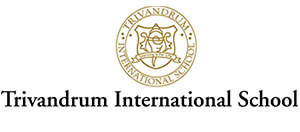In today’s digital age, technology is an integral part of a child’s upbringing. While it offers immense opportunities for learning and connection, it also brings challenges like excessive screen time, online safety risks, and exposure to cyberbullying. Teaching kids to navigate the digital world responsibly is essential for their overall development and well-being. This involves fostering healthy habits, guiding them in responsible usage, and encouraging offline activities.
Screen Time Guidelines for Kids
One of the foundational steps in digital responsibility is managing screen time. While technology can be educational, excessive use can impact a child’s physical and mental health. Experts recommend the following screen time limits:
| Age Group | Recommended Screen Time |
| Below 2 years | Minimal, primarily for video calls |
| 2-5 years | 1 hour of high-quality programming |
| 6-12 years | 1-2 hours of recreational screen use |
| Teens (13-18) | Limited to essential and recreational balance |
Establishing boundaries helps children understand the importance of moderation and prevents the habit of mindless scrolling.
Online Safety for Children
The digital world comes with its share of risks, making online safety a priority. Children should be taught to recognise and avoid potential dangers like sharing personal information, engaging with strangers, and clicking on suspicious links. Parents can help by discussing the importance of strong passwords, safe browsing habits, and reporting inappropriate content.
Managing Screen Time
Managing screen time goes beyond setting limits. It requires creating an environment that balances screen use with other activities. Parents can encourage children to take breaks using the 20-20-20 rule—look away from the screen every 20 minutes at an object 20 feet away for 20 seconds. Ensuring screen-free zones, such as during meals or in bedrooms, also fosters healthy habits.
Benefits of Digital Responsibility
Teaching digital responsibility equips children with essential life skills. They learn to make informed decisions, differentiate between credible and misleading information, and develop empathy in their online interactions. These skills not only improve their online behaviour but also positively impact their academic and social life.
Cyberbullying Awareness
Cyberbullying is a significant concern in the digital age. Educating children about its forms, such as hurtful messages, exclusion, or spreading rumours online, is crucial. They should know the importance of speaking up if they or someone they know experiences cyberbullying. Parents and educators must maintain open communication to address such issues effectively.
Parental Controls on Devices
Parental controls are valuable tools to ensure a safe digital experience for children. Features like content filters, time limits, and activity monitoring can help protect kids from harmful content and excessive usage. Parents should involve their children in discussions about these controls, emphasising that they are tools for safety, not punishment.
Building Healthy Tech Habits
Healthy tech habits go beyond rules and restrictions. Parents can model positive behaviours, such as limiting their own screen time, prioritising face-to-face interactions, and choosing quality content over quantity. Encouraging children to use technology for creative purposes, such as coding or making digital art, can also promote productive use of screens.
Encouraging Offline Activities
Balancing screen time with offline activities is essential for holistic development. Physical activities, hobbies, and family outings provide opportunities for children to engage with the real world and build stronger relationships. Outdoor play not only improves physical health but also enhances social skills and reduces dependency on devices. Many boarding schools emphasize this balance through structured extracurricular programs.
Social Media Etiquette for Kids
Social media can be a double-edged sword for children. Teaching them proper etiquette ensures they use it positively. Guidelines should include respecting others’ privacy, avoiding negative comments, and refraining from oversharing personal information. Children should also be encouraged to question the authenticity of online personas and avoid comparing their lives to curated content.
Raising responsible digital citizens is a collective effort that requires consistent guidance, open communication, and mutual trust between parents and children. By teaching kids to set boundaries, prioritise safety, and use technology thoughtfully, we prepare them to harness the benefits of the digital world while avoiding its pitfalls. Striking the right balance between online and offline activities ensures they grow up as well-rounded individuals capable of thriving in the digital age.



